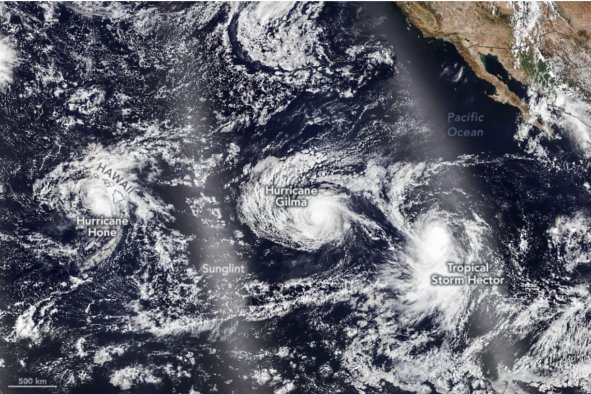Most people distrust their drinking water supply worldwide, with consequences for public health, the environment and the economy.
An international survey found that 52.3 percent of those polled globally said they expected to be seriously harmed by their drinking water within the next two years.
"If we think our water is unsafe, we will avoid using it," said senior author Professor Sera Young, global health scientist at Northwestern University, in a statement.
"When we mistrust our tap water, we buy packaged water, which is wildly expensive and hard on the environment; drink soda or other sugar-sweetened beverages, which is hard on the teeth and the waistline; and consume highly processed prepared foods or go to restaurants to avoid cooking at home, which is less healthy and more expensive."
"Individuals exposed to unsafe water also experience greater psychological stress and are at greater risk of depression," Young added.
Global health scientists, led by academics at Northwestern University and the University of North Carolina at Chapel Hill, used nationally representative data from 148,585 adults, across 141 countries, from the 2019 Lloyd's Register Foundation World Risk Poll, for the study.
The scientists found that women, city dwellers, more educated individuals, and those struggling on their current income, were all more likely to distrust their water supply than men, those living in rural areas, less educated individuals, and those who felt financially comfortable.
The strongest predictor of anticipated harm from drinking water among a country's population was perceived corruption in the public sector—more than the quality of the country's infrastructure or the strength of its economy.
In the U.S., drinking water supply is classed as nearly universally safe and available by the World Health Organization (WHO), but 39 percent of those polled still said they distrusted the water supply, to the extent that they anticipated they might be seriously harmed in the short term by drinking it.
Study authors noted some high-profile cases of unsafe drinking water in the U.S. that may have led to such widespread distrust, including lead contamination in Flint, Michigan, and water-quality violations throughout Texas.
"It's also possible that people correctly judge the safety of their water," said Young. "The good people of Flint didn't trust their water and they were spot on."
The country where people had the lowest confidence in the water supply was Lebanon, where 78.3 percent of those polled distrusted their drinking water. At the other end of the spectrum, just 8 percent of surveyed Swedish people said the same.
Globally, 14.3 percent of those surveyed said they had personally experienced or knew someone who had experienced serious harm from drinking water in the previous two years. This statistic was highest in Zambia, where 54.3 percent of those polled reported experiences with dangerous water, and lowest in Singapore at 0.9 percent.
"Our research highlights that it is imperative both to deliver safe drinking water and to make sure that people have confidence in their water source," said Joshua Miller, the study's first author, in a statement.
Where water crises have taken place, the authors noted that individuals continued to rely on bottled water and other beverages for a long time after the crisis had been resolved, with negative consequences on the environment and their health.
The authors also said that people found it difficult to judge the safety of drinking water because many water contaminants are invisible, odorless and tasteless.
So, they recommended that public officials act, not only by improving individuals' access to safe drinking water, but by increasing efforts to visibly improve water infrastructure, to make water testing more readily available, and to provide at-home water filters when contaminants are detected.
"This is the kind of work that can catalyze greater attention and political will to prioritize these services in national development plans and strategies, and get us closer to achieving universal access to safe drinking water," said Aaron Salzberg, director of the Water Institute at the UNC Gillings School of Global Public Health, in a statement.
Do you have a tip on a food story that Newsweek should be covering? Is there a nutrition concern that's worrying you? Let us know via science@newsweek.com. We can ask experts for advice, and your story could be featured in Newsweek.
Reference
Miller, J. D., Staddon, C., Salzberg, A., Lucks, J. B., Bruine de Bruin, W., & Young, S. L. (2024). Self-reported anticipated harm from drinking water across 141 countries. Nature Communications, 15(1), 7320. https://doi.org/10.1038/s41467-024-51528-x
Disclaimer: The copyright of this article belongs to the original author. Reposting this article is solely for the purpose of information dissemination and does not constitute any investment advice. If there is any infringement, please contact us immediately. We will make corrections or deletions as necessary. Thank you.



